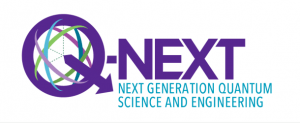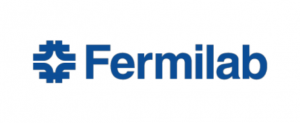By Sandra Helsel posted 16 Dec 2022
Quantum News Briefs December 16 begins with “Q-NEXT Quantum Center releases roadmap for quantum information tech”; next is Fermilab’s construction of Colossus, the world’s largest dilution refrigerator. Third is news that “Arqit drops plan to operate quantum encryption satellites”. + MORE
Q-NEXT Quantum Center releases roadmap for quantum information tech
The Q-NEXT quantum research center has published a new report, “A Roadmap for Quantum Interconnects,” which outlines the research and scientific discoveries needed to develop the technologies for distributing quantum information on a 10- to 15-year timescale. Quantum News Briefs summarizes the announcement.
Q-NEXT is a U.S. Department of Energy (DOE) National Quantum Information Science Research Center led by DOE’s Argonne National Laboratory.
The roadmap focuses on quantum interconnects, devices that link and distribute quantum information between systems and across distances to enable quantum computing, communications and sensing.
The roadmap comprises three sections, focused on quantum interconnect use in quantum computing, communication and sensing. Each section identifies the science and technology imperatives needed to advance the research area over the next decade; lays out the components and systems they use; poses questions that need to be addressed by the community; and outlines the developments necessary to turn the technology to practical advantage. Click here to read the announcement about the report in-entirety.
*****
 Fermilab’s new dilution refrigerator will be constructed around a repurposed facility originally used to test components for Fermilab’s Mu2e experiment at temperatures around 4K. When Colossus is fully built, it will offer 5 cubic meters of space and cool components to around 0.01K. That is 10 times the cooling power and 15 times the volume at that temperature than standard commercial dilution refrigerators.
Fermilab’s new dilution refrigerator will be constructed around a repurposed facility originally used to test components for Fermilab’s Mu2e experiment at temperatures around 4K. When Colossus is fully built, it will offer 5 cubic meters of space and cool components to around 0.01K. That is 10 times the cooling power and 15 times the volume at that temperature than standard commercial dilution refrigerators.
“A dilution refrigerator of this size-scale has never been built before. This presents numerous technical challenges our team is working through,” said Grzegorz Tatkowski, an SQMS cryogenic engineer. “We are designing Colossus for a rather large payload in terms of mass, and ensuring each plate reaches the right temperature specifications needed for this project is a challenge.”
Most dilution refrigerators that operate at millikelvin temperatures offer only a fraction of the space compared to Colossus, which makes scalability a big hurdle for constructing a useful quantum computer. Colossus will be so large that it will be able to house hundreds to thousands of highly coherent cavities and qubits.
“With the cooling power and volume that Colossus will provide, SQMS researchers will have unprecedented space for our future quantum computer and many other quantum computing and physics experiments,” said Matt Hollister, the lead technical expert on this project. “Colossus is named after the first electronic programmable computer, which was constructed in the 1940s for codebreaking. It was a historic milestone in the history of computing and seemed like an appropriate name for the size of our new refrigerator.” Click here to read the Phys.org article in-entirety.
*****
Arqit drops plan to operate quantum encryption satellites
 British cybersecurity software developer Arqit is looking to sell a partly built satellite after scrapping plans for a space-based quantum encryption network, as space telecom reporter Jason Rainbow writes in Space News. Quantum News Briefs summarizes below.
British cybersecurity software developer Arqit is looking to sell a partly built satellite after scrapping plans for a space-based quantum encryption network, as space telecom reporter Jason Rainbow writes in Space News. Quantum News Briefs summarizes below.
Arqit said Dec. 14 it no longer needs satellites to deliver encryption keys that can resist attacks from quantum computers. Instead, the company said it has developed a terrestrial distribution method that enables symmetric key cryptography without the risk and costs of building out a quantum communications network in space.
“The security of encryption keys created on the end points [such as customer devices and data centers] using our lightweight software agent is as strong with a terrestrial method as with the satellite method,” Arqit founder and CEO David Williams said during the company’s Dec. 14 earnings call.
The decision does not affect the construction of a satellite that Qinetiq is currently building under a contract partly funded by the European Space Agency. Arqit said there is still demand for quantum encryption satellites, including from government defense departments looking to avoid sending data traffic across international cables.
Instead of building its own satellites, Arqit intends to license the technology it has developed for them to other organizations.
Rainbow also reports that the strategy pivot came as Arqit disclosed that the U.S. Securities and Exchange Commission is investigating its merger with Centricus Acquisition, a special purpose acquisition company (SPAC) that catapulted the startup to the NASDAQ stock exchange in September 2021. Click here to read original article in-entirety;
*****
Aegiq & the University of Exeter launch Project U-Quant
Aegiq, a start-up developing solutions to enable wide-scale adoption of quantum technologies, has launched project U-Quant in partnership with the Luxmoore Lab from the University of Exeter. Both parties are building upon a successful collaboration within the UK’s Quantum Communications Hub The project will deliver improved space communication capability leveraging the benefits of true quantum light sources, as well as exploring novel materials for single-photon generation.
Project U-Quant is aimed at providing a near-term solution to the key bottleneck in deploying quantum communications on the global scale – economical intercontinental quantum links. While conventional digital communications mainly use undersea fibre-optic cables, they are unsuitable for quantum links due to losses. Satellite-based communication offers a near-term solution, which also does not have the physical vulnerability of undersea communications. The solution will be an important element of quantum-safe communications.
Aegiq (/ˈiːdʒɪk/, ee-jik) is accelerating the global transition to quantum, by developing mass-market applications with scalable technology. Aegiq is using its single-photon and integrated quantum optics platform to build a new generation of networking and computing with quantum technology, and to address the growing need of global leaders to stay ahead of the tech curve. Click here to read complete announcement.
*****
Sandra K. Helsel, Ph.D. has been researching and reporting on frontier technologies since 1990. She has her Ph.D. from the University of Arizona.













